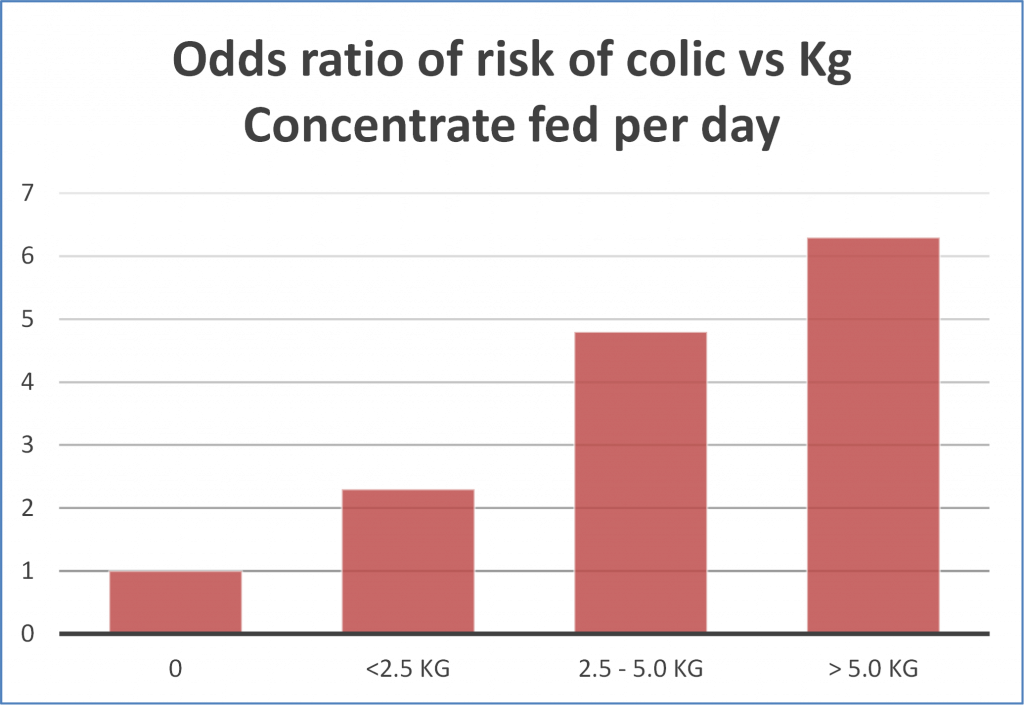Colic means a pain in the belly. It is a symptom, not a diagnosis. Causes are many and varied and colic ranges from mild and transient to severe and fatal so it should always be treated seriously. Most but not all colic’s are related to poor feed management. A sample of the different types is listed below:
Gas – most commonly resulting from fermentation of carbohydrates in the large intestine (hind gut) by gas producing bacteria. The carbs can be starch from concentrate feeds like grains, or sugars including fructans in pasture or hay. Gaseous distension of the bowel causes stretching of the wall and pain. Complications locally can include gut stasis and displacement of parts of the bowel with subsequent compromise to the blood supply. Toxins from leaky bowel wall can enter the circulation and precipitate shock or an attack of laminitis.
Obstruction – Can be a physical obstruction by e.g., sand or an accumulation of indigestible fibrous food such as poor- quality hay or straw bedding, or subsequent to a disturbance to the normal motility of the gut with displacement, folding or twisting of a section of bowel. In foals, a specific obstructive colic can be caused by intussusception when a length of gut sleeves in on itself compromising its blood supply and choking off the flow of ingesta. Hernias both internal inside the abdomen, and through the abdominal wall can also obstruct lengths of gut. Enteroliths are accretions of calcium salts forming stones in the gut which may occasionally cause obstruction.
Displacement – often subsequent to gas or a disturbance in normal motility, a length of bowel, either small or large intestine moves or floats to an abnormal position causing twisting of the supporting connective tissue (mesentery) and again, occlusion of blood supply. Requires surgery to correct.
Toxins – a variety of toxins from sources such as poisonous plants, mycotoxins from mouldy feed, contaminants such as heavy metals like lead and certain chemicals such as pesticides can be ingested and result in abdominal pain as one of the symptoms of poisoning.
Spasmodic – A symptom rather than a cause as the name implies spasm of intestinal smooth muscle comes intermittently in waves associated with pain of varying intensity.
Kidney stones (calculi) especially when smaller stones are passing down a ureter from kidney to bladder can cause severe colicky pain mimicking gut disturbance. Fortunately, fairly uncommon.
Causes are too numerous to cover in detail here. Abrupt changes in feed predispose to colic as does stabling and lack of access to pasture. High grain low forage diets are strongly correlated with higher incidence of colic as highlighted in the graph below.

